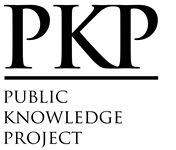Measuring the Impact of Public Expenditure on Economic Growth in Nigeria
Abstract
This paper investigates the impact of public expenditure on economic growth in Nigeria. In an attempt to do this time series data from 1970 to 2008 were fitted into the regression equation using various econometric techniques such as Augmented Dickey Fuller (ADF) unit root test, the Johansen co-integration technique and the Box-Jekins O. L. S. methodology. Empirical results affirmed that public expenditure has a positive and significant impact on economic growth in Nigeria. Public current expenditure was also found to exhibit a positive impact on growth at 10 percent significance level. While public capital expenditure albeit insignificant but showed a positive impact of growth. The study concludes that government should as a matter of policy invest heavily in public infrastructures to usher in the desired growth and development in the country.
Full Text:
PDFDOI: https://doi.org/10.5296/jsss.v2i2.5626
Refbacks
- There are currently no refbacks.
Copyright (c) 2015 Ogunmuyiwa Michael Segun, Adelowokan O. A.

This work is licensed under a Creative Commons Attribution 4.0 International License.
Journal of Social Science Studies ISSN 2329-9150
Copyright © Macrothink Institute
To make sure that you can receive messages from us, please add the 'macrothink.org' domain to your e-mail 'safe list'. If you do not receive e-mail in your 'inbox', check your 'bulk mail' or 'junk mail' folders. If you have any questions, please contact: jsss@macrothink.org
-----------------------------------------------------------------------------
